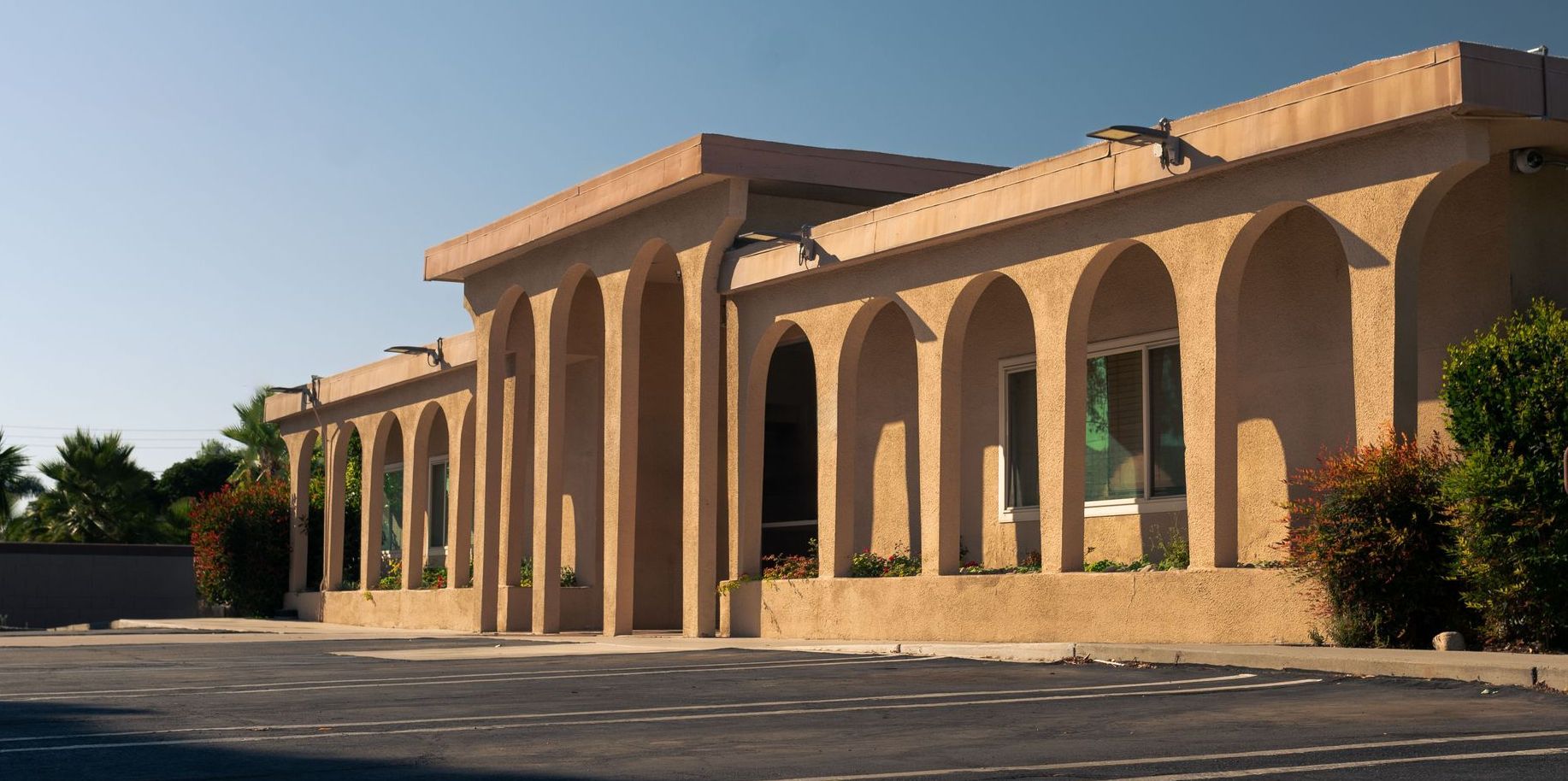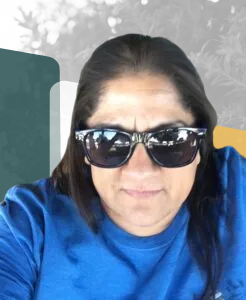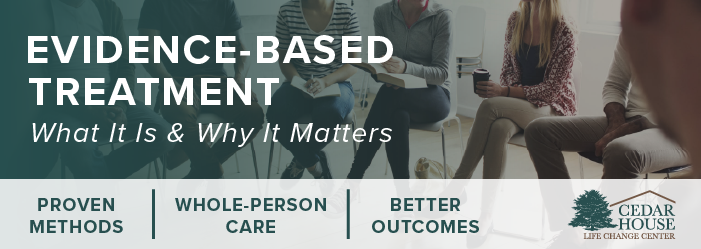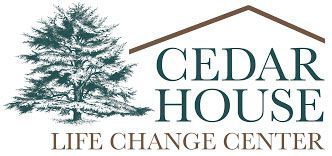The Value of Community

Ten years ago, when Jen started residential treatment at Cedar House, she knew her addiction was spiraling out of control, and she needed help. What she didn’t know was what treatment was really all about and the true value of the community she would find at Cedar House.
As a young woman in her 20s, Jen liked to “work hard and play hard.” She earned her associate degree and worked in retail management. During that time, she began drinking heavily. By the age of 29, she had four DUIs. She said, “I would wake up and fixate on drinking. I realized that I was in the grips of alcoholism.”
After trying out meth to sober up enough to drink even more, meth became her drug of choice. Jen said, “Meth is evil. It’s the devil. It leads you to do things you would never do for that next high. I felt invincible, just didn’t care, and ended up losing friends and family along the way.”
From 2003-2013, Jen was in and out of jail and prison. When she got out, she would go back to drinking, using, and couch surfing, while never really admitting to being homeless.
In March of 2013, Jen’s parole agent told her that she needed treatment at Cedar House “or you’ll find yourself back in jail”. Jen said, “I didn’t really know what that was.” But she made the call and entered the Cedar House program three days later.
When she walked in and began the intake process, the admissions staff asked about her living arrangements, and she realized for the first time that she really was homeless. She said, “For me to admit that truth, I knew, this is it. This is my best effort for something different, and I was desperate for something different.”
Now, Jen considers that “the gift of desperation. It reminds you where you don’t want to be. Never forget day one.”
One day, when Jen was settling into life at Cedar House, she heard a group of women making noise in the TV room when one woman joked, “Can we quiet down and get some recovery in here?” Their conversation continued, and Jen listened as they talked about the program and the steps. She said, “They were on fire for recovery! I remember thinking, ‘That’s what I want. I want to follow that!’”
She spent the next 90 days absorbing as much as she could from the groups and people’s stories. She learned to set goals and create a timeline for her life in the next year. Starting with those three months of residential treatment, she mapped out the next three months for outpatient treatment, meetings, and a plan to go back to school for her drug and alcohol certificate after six months. Day after day, she fine-tuned the timeline, which would prove to be a crucial tool for her sustained recovery.
Someone special had come into Jen’s life at that time, but she wasn’t fully aware of her just yet. During the time Jen spent in and out of jail, speakers occasionally came in to address the inmates on a panel. One woman’s inspiring message stood out to Jen every time. One day at Cedar House, the same woman appeared on a panel addressing clients. Jen was excited to have the opportunity to approach the panel that day and meet the woman who would later become her sponsor and dear friend, Ernestine.
Starting with Ernestine and a few close friends she met at Cedar House, Jen built herself a community of like-minded individuals who support each other in recovery and in life. This group of men and women who would attend church on Sundays while in treatment has continued going to church and meetings together for the past ten years. They stay connected with a Facebook group chat and look forward to seeing each other at events. Jen wholeheartedly believes in the value of her community. She says, “We need to have and build community.”
With ten years of sobriety, Jen knows that it took a village to help her get to where she is today. After her time at Cedar House, she continued to follow her timeline with outpatient services, meetings and sober living. She earned her drug and alcohol certification at Valley College in 2015, an associate degree in human services, and her bachelor’s degree from Antioch University in Culver City in 2020.
Since finding recovery for herself, Jen has helped countless individuals learn to live a clean and sober life through various programs. In 2021, she came to work at Cedar House as a Case Manager and continues to be an EPIC Life Changer every day. She said, “The 12-step program teaches honesty and integrity. Learning those things is so important. That acronym EPIC (which stands for Cedar House’s core values of excellence, passion, integrity and compassion) means a lot to me.”
She continues to teach the principles of recovery that serve her well. She encourages clients to make a timeline. She said, “It just makes sense. What are you going to fill your time with? What are you going to do in the next 365 days?”
“Building community. That’s what we’ve done. You have to lose everything you think you know in order to start something better.” This is the message she shares with clients, learned from “a whole lot of life experience.” She said, "You’ve got to turn it around and use it for something good.”


When someone is seeking help for drug or alcohol addiction, one of the most important questions to ask is: Is this treatment evidence-based? The answer can make a meaningful difference in recovery outcomes, safety, and long-term stability. At Cedar House Life Change Center, evidence-based treatment is the foundation of everything we do. Our programs are designed using approaches that are backed by research, clinical best practices, and decades of real-world experience serving individuals and families in the Inland Empire. What Does “Evidence-Based Treatment” Mean? Evidence-based treatment refers to therapies and clinical practices that have been scientifically studied and proven effective in treating substance use disorders and co-occurring mental health conditions. These approaches are recommended by national health authorities and continuously evaluated to ensure they improve outcomes. Unlike untested or purely anecdotal methods, evidence-based care relies on: Clinical research Outcome data Professional standards of care Ongoing evaluation and improvement In addiction treatment, this matters because recovery is complex, personal, and deeply impacted by mental health, trauma, and social factors. Why Evidence-Based Treatment Matters in Recovery Addiction affects both the brain and behavior. Effective treatment must address more than substance use alone. Evidence-based treatment: Improves engagement and retention in care Reduces relapse risk Supports mental health and emotional regulation Helps individuals build practical coping skills Increases long-term recovery success For families and referral partners, evidence-based care also provides confidence that treatment decisions are grounded in proven methods—not trends or shortcuts. Evidence-Based Treatment at Cedar House Cedar House has served adults seeking recovery for decades, and our treatment model continues to evolve based on best practices and community need. Structured, Research-Supported Curricula Cedar House utilizes well-established, evidence-based curricula, including: The Matrix Model, a structured approach shown to be effective in treating substance use disorders Living in Balance, a nationally recognized curriculum that addresses substance use, mental health, relapse prevention, and life skills These frameworks provide consistency while allowing flexibility for individual needs. Integrated, Whole-Person Care Evidence-based treatment recognizes that recovery is not one-size-fits-all. At Cedar House, clients participate in therapeutic groups and services that address: Substance use patterns Co-occurring mental health conditions Trauma and stress Family relationships Emotional regulation and coping skills This integrated approach supports both short-term stabilization and long-term recovery. Medication-Assisted Treatment (MAT) When clinically appropriate, Cedar House incorporates Medication-Assisted Treatment (MAT) as part of an evidence-based recovery plan. MAT is widely recognized as an effective tool for reducing cravings, supporting stabilization, and improving treatment retention, especially when combined with counseling and behavioral therapies. Individualized Services While evidence-based models provide the framework, treatment at Cedar House is always individualized. Clinical teams work with each client to develop a plan that reflects their history, goals, strengths, and challenges. T his balance between structure and personalization is a hallmark of effective evidence-based care. Why Evidence-Based Care Matters for Families and Referral Partners Choosing a treatment program is a significant decision. Evidence-based treatment offers reassurance that: Care is aligned with clinical standards Services are ethically and professionally delivered Treatment approaches are supported by research and outcomes Recovery planning is intentional and goal-oriented For referral partners, evidence-based programs help ensure continuity of care and better outcomes for the individuals they serve. A Commitment to Quality and Accountability At Cedar House, evidence-based treatment is not a buzzword. It’s a commitment. Programs are continually reviewed, staff are trained in best practices, and services are delivered with compassion, accountability, and respect for each individual’s recovery journey. Getting Help That’s Grounded in What Works If you or a loved one is exploring treatment options, understanding whether a program uses evidence-based approaches is an important first step. At Cedar House, treatment is grounded in what works because recovery deserves care that is informed, intentional, and proven. To learn more about Cedar House programs or to access services using private health insurance, explore the website or call 909-421-7120 today.

The holiday season can be joyful but also challenging. For many people, the holidays are a time of togetherness and celebration. But for those in recovery from substance use, this season can bring a mix of emotions -- joy and gratitude, but also stress, temptation, and pressure. Family gatherings, social events, and memories of past holidays can test even the strongest commitment to sobriety. At Cedar House Life Change Center, we understand these challenges. Our mission is to help individuals and families build lasting recovery through treatment, education, and ongoing support. Here are a few practical ways to protect your sobriety and stay connected to hope this holiday season. 1. Plan Ahead for Triggers Before attending a party or event, think about what might challenge your recovery. Bring your own non-alcoholic drink, drive yourself so you can leave early if needed, and connect with your sponsor or peer network before you go. Preparation gives you confidence and control. 2. Stay Connected to Your Support System The holidays can feel isolating, especially if you’re making lifestyle changes. Reach out to supportive friends, family members, or recovery peers who understand your journey. Schedule a check-in or attend a support group before and after big events. Staying connected helps you stay grounded. 3. Prioritize Self-Care Take care of yourself, physically, emotionally, and spiritually. Maintain regular sleep, eat balanced meals, get outside, and make time for reflection or prayer. A calm and nourished mind is your strongest ally in maintaining sobriety. 4. Set Boundaries and Say “No” Without Guilt You don’t have to attend every event or explain your choices. Declining an invitation or leaving early doesn’t make you antisocial. It makes you strong. Your recovery is your priority, and real friends and loved ones will respect that. 5. Keep Recovery at the Center of the Season Stay consistent with meetings, counseling, or alumni groups. Cedar House offers aftercare support, relapse prevention programs, and peer connections that help clients stay engaged long after treatment. Recovery doesn’t stop after discharge. It’s a lifelong process of growth and renewal. You Don’t Have to Do This Alone If you or someone you love is struggling this holiday season, Cedar House Life Change Center is here to help. Our compassionate team provides evidence-based treatment, medical support, and recovery programs designed to meet each person’s unique needs. Reach out today to learn how we can help you or your loved one find peace, purpose, and sobriety this holiday season and beyond.


Share On: